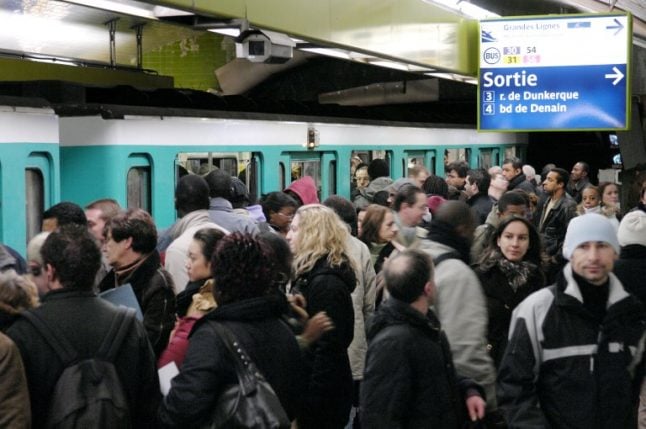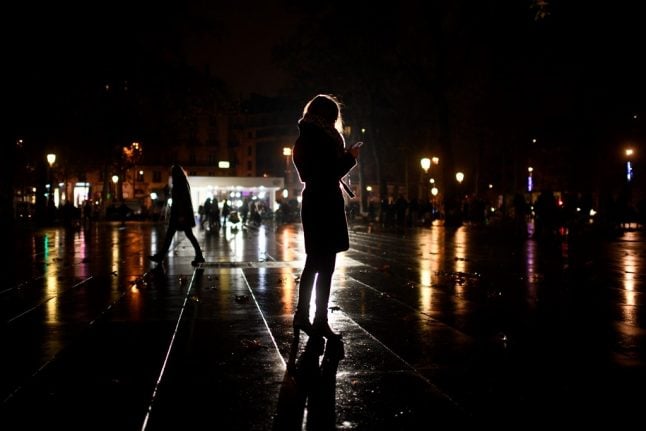Un contact érotique suppose un consentement. Sans cela il s'agit de violence sexuelle puisque l'acte est imposé. Quelle qu'en soit la manière. Vous ne faites pas la nuance entre violence sexuelle et sexualité @LeRobert_com ?
— Sans Compromis (@SansCompromisSC) May 14, 2018
SEXUAL HARASSMENT
‘Seeking erotic contact’: French dictionary blasted for definition of sex pest
A reputed French dictionary has been forced to rewrite its definition of "frotteur" - a type of sexual deviant who preys on people on public transport - after sparking anger by defining their crime as "erotic".
Published: 15 May 2018 13:03 CEST

Photo: AFP
The incriminating word 'frotteur' is one of dozens of new words making it into the 2019 edition of France's reputed Robert dictionary.
The word – from the French word 'frotter' meaning to rub – refers to someone who rubs up against others on public transport without their consent in order to gain sexual gratification.
While there is no outcry about the word itself being included in the dictionary – given the recent focus on sexual harassment on public transport in France – critics have accused the dictionary of underplaying the seriousness of the act by the definition it included.
According to Le Robert, a 'frotteur' is someone who “seeks erotic contact with other people by exploiting the closeness of people in public transport”.
But people soon took to Twitter to express their anger, arguing that rubbing up against someone on the Metro was not erotic, it was sexual harassment.
One person tweeted: “An erotic contact suggests consent. But this is sexual violence because the act is imposed on them.”
In France, offending 'frotteurs' can be fined up to 75,000 euros and face up to 3 years in prison.
After the dictionary was flooded with emails complaining about this inadequate definition, its editor apologized and said they would review the definition.
“We understand people's outrage when they discovered the definition in the Robert. We recognise that this definition is too implicit. However, we are pleased that readers shared their opinions on our lack of precision,” the dictionary's lexicographer Édouard Trouillez told Le Figaro.
“Since the Weinstein affair, we have included many new words related to equality between the sexes. It is therefore important for us to keep working towards that goal.”
As in many other countries around the world, the Weinstein affair last year sparked a debate in France about sexual aggression and violence. After the scandal broke, the number of formal complaints of sexual aggression lodged in France rose over 30 percent.
The protests occurred as a new bill on sexual and sexist violence was being debated in the French parliament on Monday.
Url copied to clipboard!



 Please whitelist us to continue reading.
Please whitelist us to continue reading.
Member comments